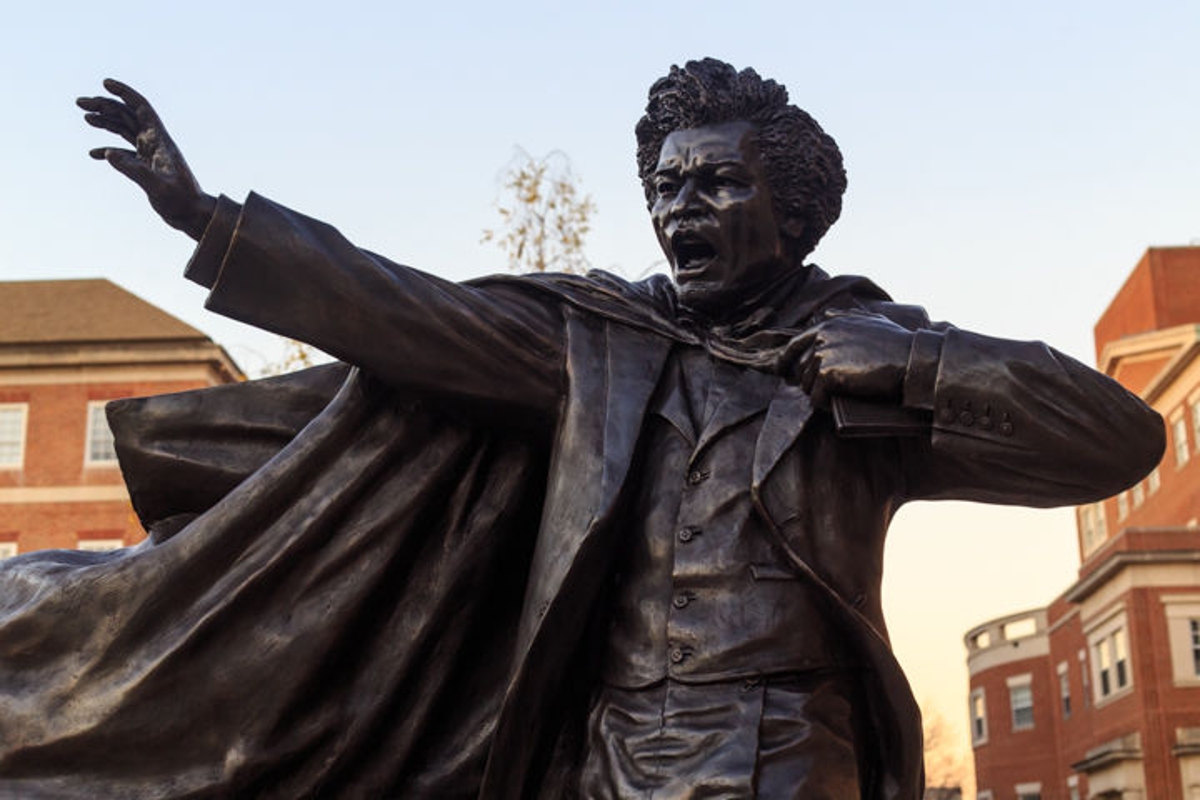 |
| Daneil O'Connell The Liberator 1775-1847 |
"Catholic emancipation or Catholic relief was a process in the Kingdom of Great Britain and Ireland in the late 18th century and early 19th century that involved reducing and removing many of the restrictions on Roman Catholics introduced by the Act of Uniformity, the Test Acts and the penal laws."
Relief from the proto-Apartheid penal laws that oppressed the Irish.
Frederick Douglass Family and
Douglass Ireland Project Board to Join
Dedication of Frederick Douglass Square at
University of Maryland

The Frederick Douglass Ireland Project Founded in 2011 as the Frederick Douglass/Daniel O'Connell Project, the Frederick Douglass Ireland Project highlights the inspirational role that Ireland and the Irish people played in Frederick Douglass’s life. In 1845, as Ireland was descending into the despair of the great famine, Douglass arrived for a four-month lecture tour of the island. Douglass had escaped slavery in Maryland seven years earlier and had recently published his autobiography, Narrative of the Life of Frederick Douglass, An American Slave, Written by Himself. He was shocked and appalled by the living conditions of the Irish peasantry and likened them to conditions endured by slaves on American plantations. Douglass was greeted in cities and towns including Dublin, Belfast, and Cork by swells of enthusiastic crowds. Although Douglass continued his speaking tour in Scotland and England, it was his experience in Ireland that he described as “transformative. " Douglass often recalled that his time in “Dear Old Ireland” - the first country outside of the U.S. to publish his autobiography- had given him “a new life.”
http://douglassoconnellmemorial.org/_pdfs/pr_FDIP_11-18-2015.pdf